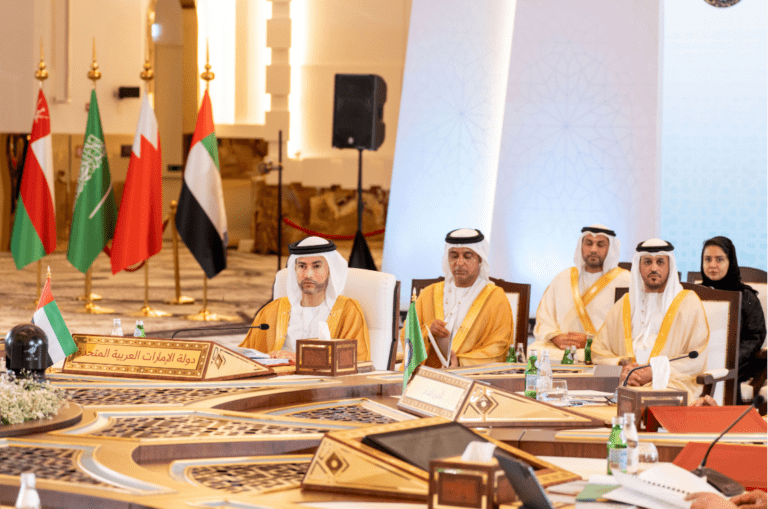The UAE delegation, spearheaded by Minister of State for Financial Affairs, Mohamed bin Hadi Al Hussaini, attended the 122nd session of the Financial and Economic Cooperation Committee of the Gulf Cooperation Council (GCC) held on October 2-3 in Doha, Qatar.
This high-profile meeting brought together finance ministers from GCC countries, aiming to address significant financial and economic matters pertinent to the region. The gathering resulted in the approval of several initiatives aimed at bolstering economic collaboration and fostering sustainable growth within the GCC.
One of the main discussions centered around the 83rd assembly of the GCC Central Bank Governors Committee and the latest deliberations from the Customs Union. Additionally, the committee reviewed updates from several working groups established by earlier meetings of the Financial and Economic Cooperation Committee.
Further talks highlighted the 161st Ministerial Council’s decision regarding the future scope of the Customs Union Board of Directors. This was complemented by discussions on key projects designed to complete the Customs Union’s development process.
In addition to these critical agenda points, the outcomes of other important gatherings, such as the 13th Heads of Tax Departments Committee meeting and the 41st GCC Common Market Committee, were reviewed.
Alongside Mohamed bin Hadi Al Hussaini, the UAE’s delegation included notable figures such as Younis Haji Al Khoori, the Undersecretary of the Ministry of Finance, Khalid Ali Al Bustani, the Director General of the Federal Tax Authority, Ahmed Abdullah Lahej Al Falasi, the Director General of Customs at the Federal Authority for Identity, Citizenship, Customs, and Port Security, as well as several other ministry officials.
Mohamed bin Hadi Al Hussaini underlined the significance of the UAE’s involvement in these discussions, noting that the objective was to “further strengthen the economic integration among GCC countries and contribute to achieving sustainable development.” He also pointed out the rapidly evolving global economic environment, stressing the necessity of “collective cooperation and joint efforts to formulate robust financial policies capable of adapting to these shifts.” He further emphasized overcoming the hurdles obstructing economic unity within the GCC and the urgent need to finalize the Customs Union framework.
“These meetings provide an ideal platform to accelerate the pace of joint action and achieve prosperity and sustainability in the region,” Al Hussaini added. “We are committed to harnessing international expertise, such as that offered by the International Monetary Fund, to develop financial strategies that strengthen the resilience of our national economies and open up new opportunities for investment and development.”
As part of his engagements, Al Hussaini attended the “Future of the GCC” forum, a key event organized in collaboration with Georgetown University.
The forum featured expert discussions focused on the future of economic partnerships within the region and highlighted the challenges and opportunities lying ahead. It also examined how academic collaborations can contribute to shaping effective financial policies.
Moreover, Al Hussaini was present at a joint meeting between GCC finance ministers, central bank governors, and the Managing Director of the International Monetary Fund (IMF). This session concluded with a commitment to continued cooperation and coordination among GCC member states, ensuring they can navigate global economic shifts effectively.


